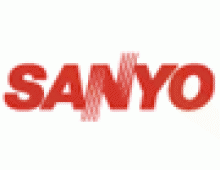
Sanyo's Technology Suppresses Bird Flu Viruses
Sanyo Electric announced that its proprietary electrolyzed water technology effectively suppresses avian influenza (bird flu) viruses.
This result was achieved by corroborative research with Tottori University. It was shown that Sanyo's proprietary electrolyzed water technology -- disinfectant element system and disinfectant electrolyzed mist system -- was effective in suppressing more that 99% of airborne avian influenza viruses.
Sanyo has been researching electrolyzed water for over 20 years, and one of its results from this research was the production of a detergent-free washing machine, introduced in August 2001.
Since December 2003, infection with the highly pathogenic avian influenza virus (H5 type) in poultry and humans has been identified in many countries, especially those in Southeast Asia, Europe and Africa, and has taken more than 100 human lives. Research into the avian influenza viruses has attracted a great deal of attention from around the world. The Tottori University research team, led by Professor Kouichi Otsuki of the Faculty of Agriculture, is one of the pioneers in research into avian influenza viruses in Japan.
Experiments were conducted to study the efficacy of Sanyo's disinfectant element and disinfectant electrolyzed mist systems, containing only a 10mg/l concentration of free residual chlorine.
Sanyo applied a diluted amount of electrolyzed water, created from conventional tap water using the firm's electrolyzing process. The results confirmed that 99% of airborne avian influenza viruses were suppressed when passed only one time through the disinfectant element system, or when sprayed with the disinfectant electrolyzed mist.
The electrolyzed water is simple to make from tap water and has a low concentration of free residual chlorine compared to chlorine-based disinfectant. Thus, Sanyo's proprietary technology -- the disinfectant element system or the disinfectant electrolyzed mist system (sprayed) ʽV suppresses the avian influenza virus and is also safe for the environment. It is also practical for applied development.
"Now we are exploring ways to commercialize the technology, not only for Japanese disinfectant tools, but also for Asian nations and regions such as Vietnam, China, South Korea, etc. It could be commercialized, for example, as an air purifier for use on airplanes, trains, etc," said a Sanyo official.
Sanyo has been researching electrolyzed water for over 20 years, and one of its results from this research was the production of a detergent-free washing machine, introduced in August 2001.
Since December 2003, infection with the highly pathogenic avian influenza virus (H5 type) in poultry and humans has been identified in many countries, especially those in Southeast Asia, Europe and Africa, and has taken more than 100 human lives. Research into the avian influenza viruses has attracted a great deal of attention from around the world. The Tottori University research team, led by Professor Kouichi Otsuki of the Faculty of Agriculture, is one of the pioneers in research into avian influenza viruses in Japan.
Experiments were conducted to study the efficacy of Sanyo's disinfectant element and disinfectant electrolyzed mist systems, containing only a 10mg/l concentration of free residual chlorine.
Sanyo applied a diluted amount of electrolyzed water, created from conventional tap water using the firm's electrolyzing process. The results confirmed that 99% of airborne avian influenza viruses were suppressed when passed only one time through the disinfectant element system, or when sprayed with the disinfectant electrolyzed mist.
The electrolyzed water is simple to make from tap water and has a low concentration of free residual chlorine compared to chlorine-based disinfectant. Thus, Sanyo's proprietary technology -- the disinfectant element system or the disinfectant electrolyzed mist system (sprayed) ʽV suppresses the avian influenza virus and is also safe for the environment. It is also practical for applied development.
"Now we are exploring ways to commercialize the technology, not only for Japanese disinfectant tools, but also for Asian nations and regions such as Vietnam, China, South Korea, etc. It could be commercialized, for example, as an air purifier for use on airplanes, trains, etc," said a Sanyo official.



















